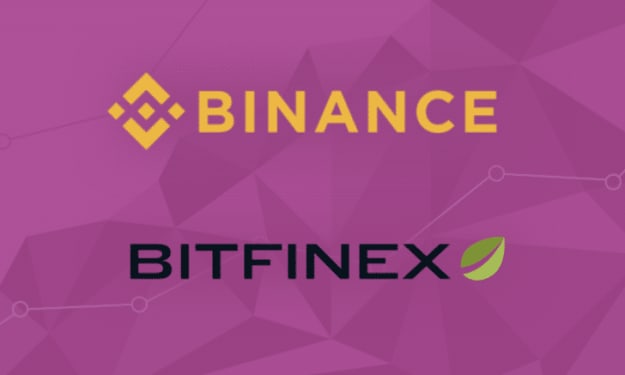Minds Is the Anti-Facebook That Pays You for Your Time
Directly following security embarrassments, Facebook clients are recently understanding their information makes the organization rich. Consider the possibility that stages paid them for their commitments ?

DURING MARK ZUCKERBERG’S over 10 hours of Congressional declaration last week, legislators over and again asked how Facebook brings in cash. The straightforward response, which Zuckerberg evaded, is the commitments and online exercises of its over two billion clients, which permit advertisers to target promotions with razor accuracy. In which case, asked agent Paul (D — New York), “for what reason doesn’t Facebook pay its clients for their extraordinarily significant information?”
It’s a decent inquiry, one that elective informal communities like Minds have endeavored to reply. The thought isn’t altogether new-Minds sent off in 2015-yet the site and others like it feel pertinent as individuals reconsider the deal Facebook has made with them.
Minds are little contrasted with Facebook-it just has around 1,000,000 clients, 110,000 of whom are dynamic every month-except it’s a noticeable illustration of what it resembles when a stage changes the customary advertisement upheld model. It doesn’t feel altogether not the same as Facebook, essentially not right away. The webpage’s landing page is a news source, with tabs for perusing pictures, recordings, online journals, and gatherings at the highest point of the page. If you don’t follow anybody specifically, it rapidly loads up with what could be compared to advertisements, which Minds calls “Lifts.” (You can likewise oust every one of the helped posts from your feed with a $5 Minds Plus month-to-month membership.)
In a reviving change from Facebook, Twitter, Instagram, and the other significant stages, Minds has likewise held a rigorously opposite, ordered timetable. The center of the Mind's insight, however, is that clients get “tokens” when others associate with their posts, or basically by investing energy in the stage.
“Assisting individuals with bringing in cash online is a significant focal point of our own,” says 32-year-old Minds originator Bill.
The tokens clients get for adding to Minds doesn’t yet mean genuine cash, however they can be used inside the stage to purchase two sorts of Boosts. News channel Boosts work similarly as customary advanced promotions, infusing a post into others’ channels. Distributed Boosts, in the meantime, formalize a piece of the computerized economy that has generally existed, allowing you to pay one more Minds client to share your post to their supporters. It’s what could be compared to a brand paying an Instagram blogger to wear their shoes, or an artist paying a well known Twitter record to tweet out their SoundCloud mix tape. The thing that matters is that the monetary relationship is uncovered in the open. “Assuming you use the Boost well, you could have no crowd and effectively gain like five to 10,000 supporters,” says Bill.
Minds don’t allow you to use a Boost to target explicit clients on the stage; your post rather gets shared to 1,000 irregular individuals for every symbolic you spend. That’s what Bill says, assuming Minds could work out a focusing on ability, the whole framework would expect clients to expressly select in. If you haven’t gained enough tokens from adding to or using Minds, you can likewise decide to pay for one or the other Boost using a charge card: 1,000 perspectives costs $1.
The Token Economy
The tokens on Minds can be used for something beyond advertisements; they basically power the informal organization’s whole environment. Using Wire, the stage’s inherent Patreon-like component, clients can tip makers, or pay for restrictive substance, assuming that somebody puts a post behind a paywall. You can likewise gain tokens by adding to Minds’ code, or finding programming bugs the whole site is open source. Last month, Minds started testing changing over its symbolic framework, which was recently called focuses into another cryptographic money, the Minds token, which runs on the Ethereum blockchain network. In principle, Minds clients can ultimately take their tokens to trades, and convert them into another cryptographic money like Bitcoin, or even into dollars.
Brains won’t probably ever turn into the following Facebook-its moderately small client base hasn’t developed a lot throughout the most recent few years-yet it addresses a model of what could be an altogether different sort of informal organization. For one’s purposes, Minds expects to be local area possessed, and it doesn’t see itself as in contest with other, comparable open-source projects. Last year, Minds raised more than $1 million from over 1500 individual supporters. It depends on income from individuals purchasing lifts, and a likely payday assuming Minds digital money gains in esteem. “I consider each organization that is open source, encoded, and running after decentralization, ‘in the same boat’ and trust they feel the same way,” Bill said in an email.
Minds aren’t the main informal organization to pay out cryptographic money for movement. Steem-it has a comparative model, compensating clients with a small amount of the cryptographic money Steem for all that they do on the stage. The principle distinction among Steem-it and Minds is the previous’ weighted democratic framework, which esteems the contribution of more seasoned Steem-it accounts over novices. While a vote from a beginner on the stage may be worth under a penny, a vote from somebody with a laid out standing may be valued at a few dollars. On Minds, no such special treatment exists.
Minds likewise has a few feature focuses :
Totally for nothing
Minds use blockchain innovation, which permits running on a decentralized organization. It’s created considering clients commitments, made items and commitment between clients.
Source codes are constrained by an enthusiastic and cordial local area. Not at all, like many shut source social stages, Minds serves individuals rather than benefits.
It incorporates such highlights as Blog, Group, Channel, and Video.
You can bring in cash from Minds with Minds Token. While Facebook takes clients' data to offer to the outsider for benefits without giving a penny to clients, Minds pays clients. With Minds, the quantity of preferences (upvote), shares (remind), remarks, and so on are changed over to remunerating focuses. These focuses are amassed all together that clients can use them to publicize their items, provide for somebody or pull out.
The renowned programmer gathering of “Unknown” advertised that they support Minds in 2015.
Altering component of Mind is more proficient and helpful, contrasting with Facebook.
Minds has the capacity of revealing/covering mature items — with the E image
Assuming that you move up to Minds Plus, you will likewise have Premium Features.
!!! Join minds now !!!
Hope you enjoyed today’s reading ;) support us , show some love by liking this article and sharing with your friends this will motivate us to come again with these types of interesting ideas and knowledge…
If you have any question or suggestion comment us !!
About the Creator
james
myself james !
here you will find interesting knowledge and update of everything big
so stay connected with me and be active to this amazing world.






Comments
There are no comments for this story
Be the first to respond and start the conversation.